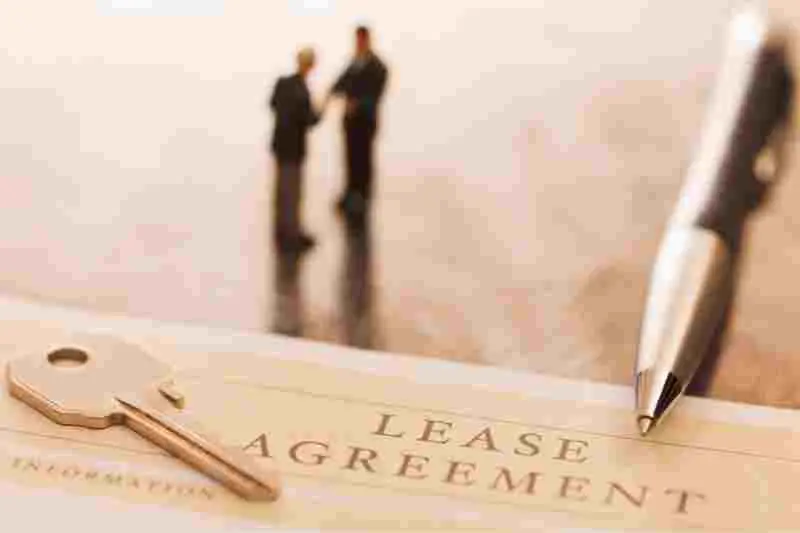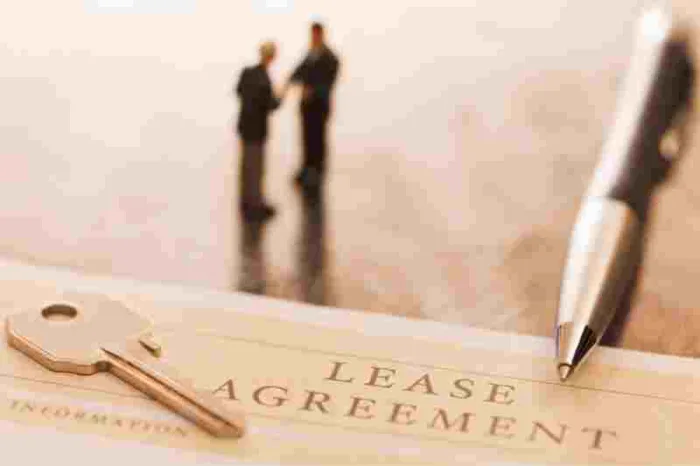
Disclaimer: This content is for informational purposes only, you should not construe any such information as legal, tax, investment, financial, or other advice. Nothing contained on our site constitutes a solicitation, recommendation, endorsement, or offer by ButterflyMX or any third-party service provider. ButterflyMX is not a financial adviser. You should always seek independent legal, financial, taxation, or other advice from a licensed professional.
Investing in commercial property is a major undertaking. If you’re new to real estate investments, a commercial lease is likely what you’re looking for. Whether you’re leasing retail, multifamily housing, or even business suites, the triple net lease will be on your list.
A triple N is one of the most common commercial leases and is easier than most to apply for. In this post, we take a deeper look at this type of lease and whether it’s worth applying for.
In this post, discover:
- What is a triple net (NNN) lease?
- What are the benefits of a triple net lease?
- What is the downside of a triple net lease?
- Should you apply for an NNN lease?
What is a triple net (NNN) lease?
An NNN (triple net lease) is a type of commercial lease where tenants pay the base rent plus operating expenses like utilities, taxes, and insurance. A triple net lease is one of the most common commercial lease agreements in real estate investing.
With NNN leases, tenants (or lessees) are responsible for paying:
- Rent
- Property taxes
- Property insurance
- Maintenance
- Repairs
- Upgrades
Other types of net leases include:
- Single net lease: Under this lease, landlords only require their tenants to pay for property taxes while they take care of the rest. These are rare and usually only agreed upon under extenuating circumstances.
- Double net lease: The double N lease requires the lessee to pay property taxes and rent but not property insurance.
How do you calculate NNN?
If you’re renting a building as the sole renter, then you calculate a triple net (NNN) lease by:
- Multiplying the total property tax + insurance for the year.
- Dividing the square footage being rented by the above number.
The landlord determines the final rates. However, as the tenant, you may have the advantage of negotiating the base rent.
What are the benefits of a triple net lease?
The prospect of how much responsibility a lessee has when applying for an NNN may have you wondering what’s in it for you? The truth is, the triple net lease does offer some benefits that make it attractive for investors.
Benefits of a triple net lease include:
1. Decision-making power
Triple net leases empower tenants to make more decisions about using the property and how to manage it.
Tenants in an NNN lease have more autonomy to pursue design, construction, and maintenance choices because they put more money in than with other leases. This is perfect for investors who don’t want the crushing responsibility of being a landlord but also want more control over their property.
2. Controlled costs
Since the tenant is the one responsible for paying rent, property taxes, and insurance, they are also responsible for finding those providers.
The biggest benefit this can afford an NNN tenant is by giving them more control of the costs. By shopping around and negotiating, tenants can potentially find providers that fit their budget.
This can also increase the amount of funds a tenant has left over that could go toward capital expenditures or maintenance needs.
3. Stability
When breaking into real estate investing, stability is paramount to your success. Because triple net leases are long-term agreements, tenants can enjoy a stable location without worrying about reapplying too soon.
4. Reputation of landlord
Before entering into any agreements with potential landlords, you should always research them first. Because you’re signing over so much, it’s your responsibility to hire a legal team that can help you navigate this portion of the process.
Things to look for in a landlord include:
- Transparency
- Past rules/regulations
- Fairness
- Communication style
Learn more about commercial real estate development:
What is the downside of a triple net lease?
The biggest downside of a triple net lease for investors is the overall costs and financial burden.
It can be difficult to fork over so much money if you haven’t even started seeing a profit from your business. As a result, this makes the NNN lease a riskier investment for newcomers.
Should you apply for an NNN lease?
Making a decision about your property investment is a major one and can impact the success of your endeavors.
Before applying for a triple net lease, consider the:
- Location of the property: Location matters, and it can also dictate whether your application is accepted. For instance, is it within your target market? Are zoning requirements going to affect progress? How old or new is the property you’re hoping to lease? These are all things you should consider about the location before applying.
- Risk level of the investment: Real estate risk level is a major factor for landlords. For instance, if the property you want to lease isn’t in a high-traffic area, then rent costs may be lower. Furthermore, insurance premiums on high-risk properties could pose a larger financial issue for you when starting out.
- Property type you’re looking for: Some property types, such as a retail space for lease, could affect rental rates and competition. So, it’s in your best interest to research the type of property you want to lease vs. the type of property that’s high-risk.
Takeaways
- A triple net lease is a type of commercial lease where tenants are responsible for paying rent, property taxes, property insurance, and utilities.
- The benefits of an NNN lease include more decision-making power, controlled costs, and stability.
- The greatest disadvantage of a triple net lease is the full scope of financial responsibility.
- You should only apply for an NNN lease after considering the location of the property, the risk level of the investment, and the property type.







